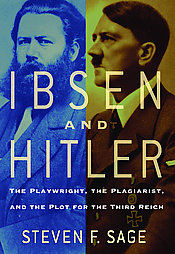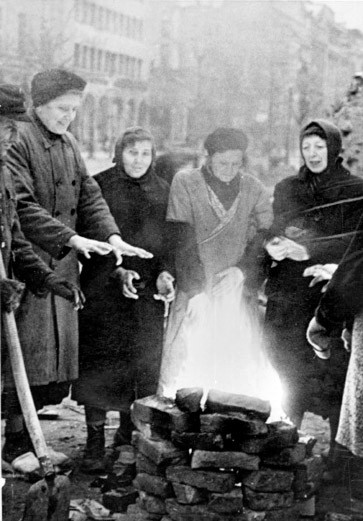Hitler, Ibsen, and Political Theater
To what extent was the Nazi movement suffused with pure theater? What explains the fascination that Nazi symbols and Adolf Hitler himself had for millions, then and even today? Classic theater in Europe, especially drama, has always been viewed as serious literature, and Germany to this day has more theaters than any other country in the world. During the National Socialist period the Nazi Party made great use of theatrical techniques to embellish Party events.
 In Ibsen and Hitler, Steven F. Sage assesses the impact Henrik Ibsen’s plays had on the development of Adolf Hitler’s Weltanschauung and place in history. Sage, who completed the book as a scholar at the Center for Advanced Holocaust Studies of the U.S. Holocaust Memorial Museum, must be read with caution because he moves rapidly from Hitler’s appreciation of Ibsen’s plays, especially Emperor and Galilean, which is factual and convincing, to what the author considers the dictator’s slavish obsession and identification with the playwright’s other plots and characters, which is far less convincing. Always mindful that this book has been written to further traduce the National Socialist leaders of the period, nonetheless much of the material introduced is new to the American reader and well worth examining.
In Ibsen and Hitler, Steven F. Sage assesses the impact Henrik Ibsen’s plays had on the development of Adolf Hitler’s Weltanschauung and place in history. Sage, who completed the book as a scholar at the Center for Advanced Holocaust Studies of the U.S. Holocaust Memorial Museum, must be read with caution because he moves rapidly from Hitler’s appreciation of Ibsen’s plays, especially Emperor and Galilean, which is factual and convincing, to what the author considers the dictator’s slavish obsession and identification with the playwright’s other plots and characters, which is far less convincing. Always mindful that this book has been written to further traduce the National Socialist leaders of the period, nonetheless much of the material introduced is new to the American reader and well worth examining.
Ibsen and Hitler argues that there are much more than coincidental similarities between the characters and plot lines in Ibsen’s plays and the policies and speeches of Adolf Hitler. Indeed, textual analysis of passages from Hitler’s speeches and passages in the plays reveals parallels that could hardly be accidental. The three Ibsen plays upon which Sage bases his study are: Emperor and Galilean, The Master Builder, and An Enemy of the People. Emperor and Galilean tells the story of Julian the Apostate, a nephew of the Christian emperor Constantine the Great, and his foiled attempt to reinstate paganism in the Roman Empire. Ibsen considered Emperor and Galilean to be his magnum opus. It was first published in Norway in 1873 and was translated into German in 1899. Read more






